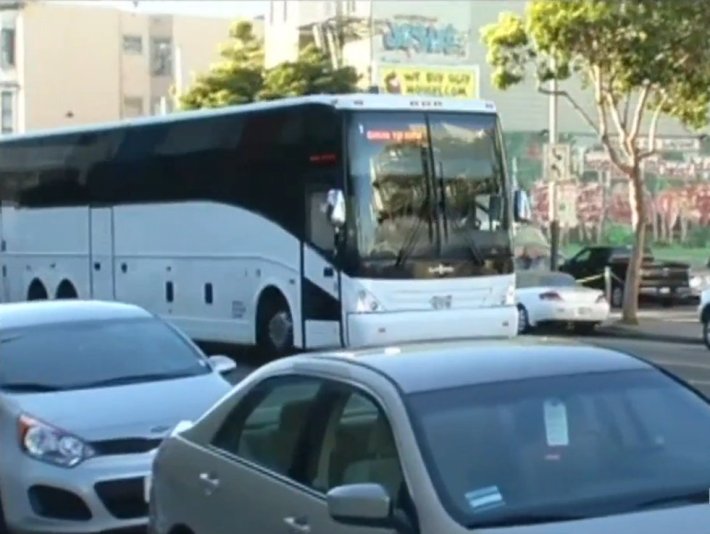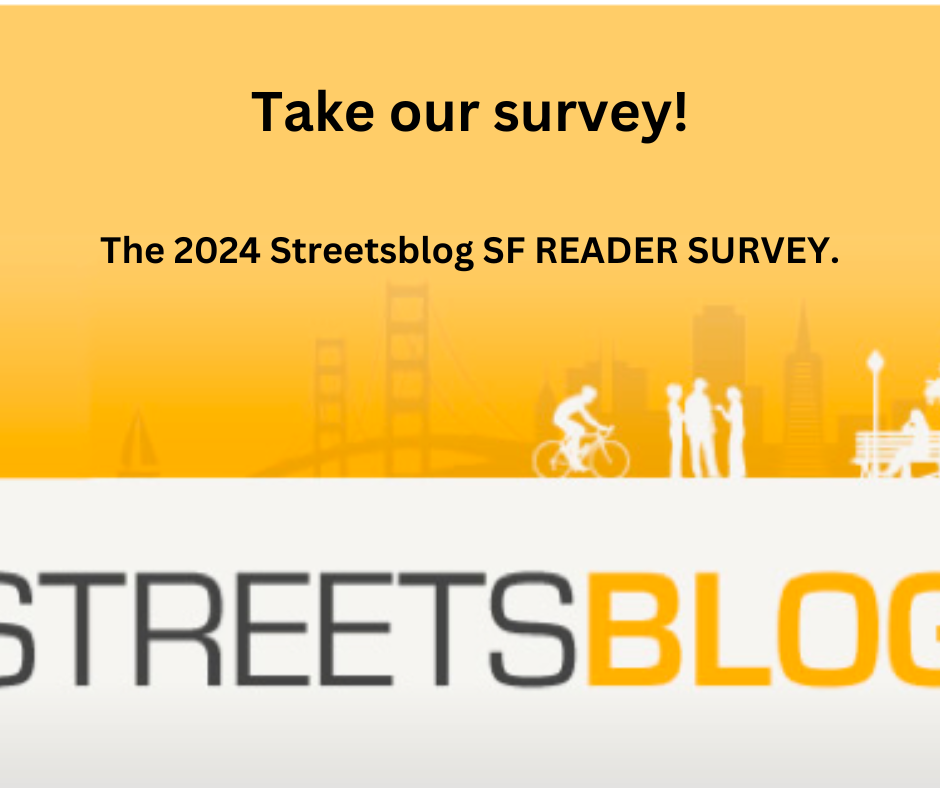Tech workers' humdrum daily commutes in San Francisco have recently become anything but. An environmental appeal was filed (and later rejected) against the city, on the grounds that the "Google buses" are a direct cause of skyrocketing rents and housing displacement. Protestors blockading tech shuttles in bus stops have drawn a frenzy of international media attention.
So what can a gentrifier do to get to that lucrative tech job in Silicon Valley, without having to sneak around costumed blockades and news cameras? As it turns out, there is one sly way for a commuter to use plenty of public curb space for absolutely free, while completely avoiding public scrutiny. All that this theoretical Google or Facebook worker has to do to both enjoy the city life in San Francisco, and fly under the radar of the political backlash, is drive to work.
You can bet that no one will block their vehicle in protest, file a lawsuit, or seek an environmental review for the existing policies that let commuters store their private vehicles on public streets.
Sure, the big private buses make an easy target to fixate upon and blame for the city's housing woes. Sure, many of us have sat aboard Muni buses blocked by a shuttle bus idling at its bus stop. As we've written, this is not a sustainable situation: Private bus operators should be charged an appropriate and legal amount for new loading zones by reallocating curb space now used for parking. That's what the SFMTA is planning to do with its pilot regulation program. Although its scant $1-per-stop price has drawn criticism, it's the maximum allowed under state law, and SFMTA Director Ed Reiskin has wished aloud that they could charge more.
Targeting tech shuttles does not address the root causes of the city's big woes, and two recent polls indicate that a majority of San Franciscans agree. The Bay Area has failed to build an efficient transit network to connect where people live and work, and failed to build enough housing to match its vigorous job growth. Minimum parking requirements ensure that cars find housing, even when people can't, and even though most of the space along San Francisco's curbs is reserved for storing private automobiles.
The very same complaints against commuter shuttles, as lodged by those who appealed the environmental review exemption for the SFMTA's shuttle regulation program, can be levied against cars as well -- albeit on an entirely different scale. Private cars clog the streets, block Muni, occupy public space for free, create air and noise pollution, and endanger bicyclists and pedestrians, all day, every day, throughout the entire city -- and instead of filing lawsuits, we take it all for granted.
If the argument is that vehicles driven for highly-paid residents are also vehicles that drive gentrification, it's bizarre that no one seems to care when that vehicle is a car. It's another example of how our society has a huge blind spot: We cannot seem to see how much we've re-shaped our cities, and our lives, to ignore the negative effects of the automobile.
Stay in touch
Sign up for our free newsletter




